10 Best Herbal Creams For Lice
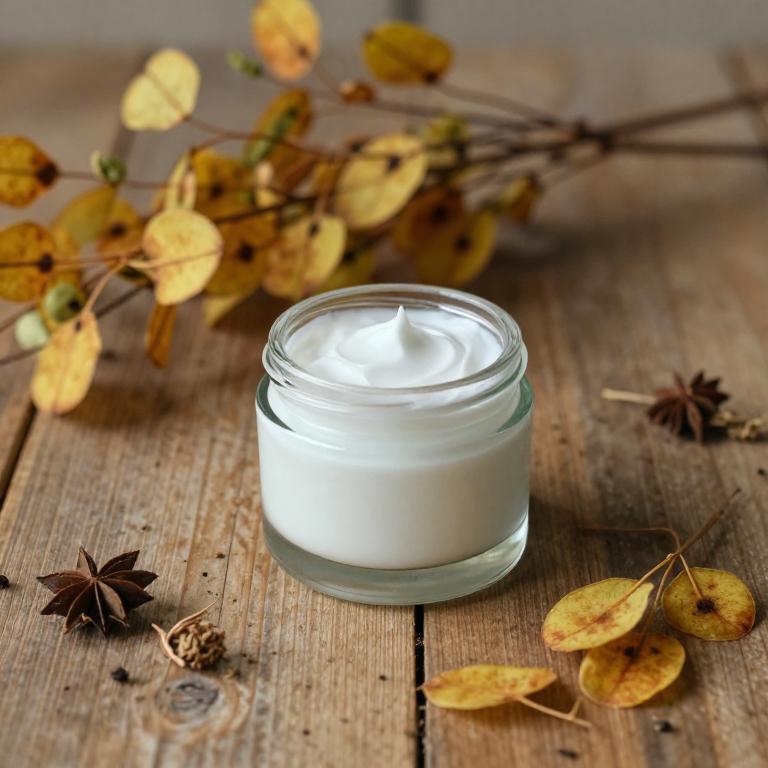
Herbal creams for lice are natural treatments that use plant-based ingredients to combat head lice infestations.
These creams often contain essential oils like tea tree oil, lavender, and neem, which have antiparasitic and soothing properties. Unlike traditional chemical treatments, herbal creams are generally considered safer for children and may reduce the risk of allergic reactions. However, their effectiveness can vary, and they may require repeated applications for complete eradication of lice.
It is advisable to consult a healthcare professional to determine the most suitable treatment option based on the severity of the infestation.
Table of Contents
- 1. Melaleuca (Melaleuca alternifolia)
- 2. Eucalyptus (Eucalyptus globulus)
- 3. Lemon grass (Cymbopogon citratus)
- 4. English lavender (Lavandula angustifolia)
- 5. Polium germander (Teucrium polium)
- 6. Ceylon cinnamon (Cinnamomum zeylanicum)
- 7. Thyme (Thymus vulgaris)
- 8. Black pepper (Piper nigrum)
- 9. White cedar (Thuja occidentalis)
- 10. Anise (Pimpinella anisum)
1. Melaleuca (Melaleuca alternifolia)

Melaleuca alternifolia, commonly known as tea tree oil, is a natural ingredient often used in herbal creams for the treatment of lice due to its potent antimicrobial and antiparasitic properties.
These creams typically combine tea tree oil with other essential oils and moisturizing agents to create an effective, gentle formula that can help eliminate head lice and their eggs. The active compounds in tea tree oil, such as terpinen-4-ol, disrupt the cell membranes of lice, leading to their demise without the use of harsh chemicals. While these creams may not completely eliminate lice on their own, they can be a useful complementary treatment when used alongside combing and other mechanical removal methods.
However, it is important to consult a healthcare professional before using such products, especially for children or individuals with sensitive skin.
2. Eucalyptus (Eucalyptus globulus)
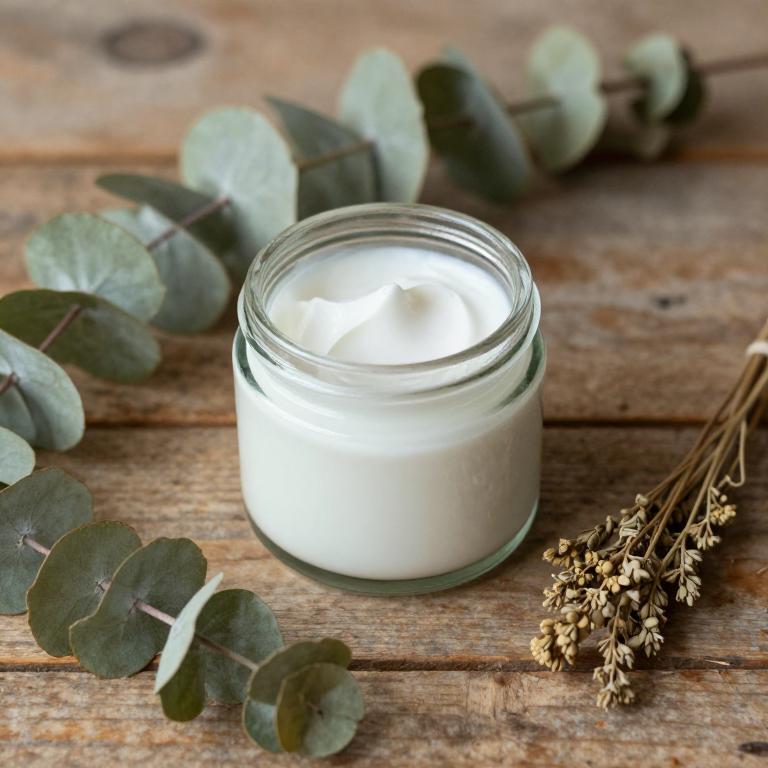
Eucalyptus globulus, commonly known as the Australian eucalyptus, is often incorporated into herbal creams designed to combat lice due to its potent essential oils and antiparasitic properties.
These creams typically combine eucalyptus oil with other natural ingredients like lavender, tea tree oil, and peppermint to enhance their effectiveness against head lice. The active compounds in eucalyptus globulus, such as cineole and limonene, have been shown to disrupt the lice life cycle by repelling and killing the insects. While these herbal creams are generally considered safe and gentle for most users, they may not be as effective as medicated treatments for severe infestations.
As a natural alternative, they offer a soothing and aromatic option for those seeking non-chemical solutions to lice problems.
3. Lemon grass (Cymbopogon citratus)
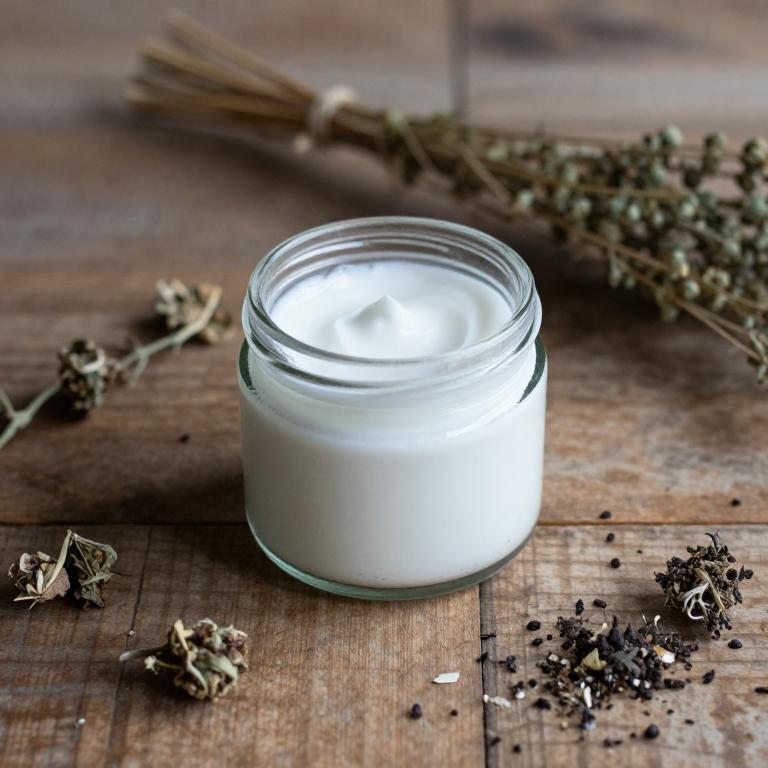
Cymbopogon citratus, commonly known as lemon grass, is a natural herb that has been traditionally used for its aromatic and therapeutic properties.
When incorporated into herbal creams, it can be effective in treating lice infestations due to its essential oils, which possess insecticidal and repellent qualities. These creams work by disrupting the nervous system of lice, leading to their elimination without the use of harsh chemicals. The soothing properties of lemon grass also help to reduce irritation and discomfort in the scalp.
As a result, Cymbopogon citratus herbal creams offer a safe and natural alternative for those seeking to combat lice infestations.
4. English lavender (Lavandula angustifolia)

Lavandula angustifolia, commonly known as English lavender, is often incorporated into herbal creams due to its soothing and antiseptic properties.
These creams are believed to help alleviate the discomfort and irritation caused by lice infestations by providing a calming effect on the scalp. The essential oils in lavender have natural insect-repelling qualities that may help reduce lice activity and prevent further infestation. While not a substitute for medical treatments, lavender-based creams can be a complementary option for those seeking a more natural approach.
However, it is important to consult a healthcare professional for effective and safe lice treatment, especially in severe cases.
5. Polium germander (Teucrium polium)
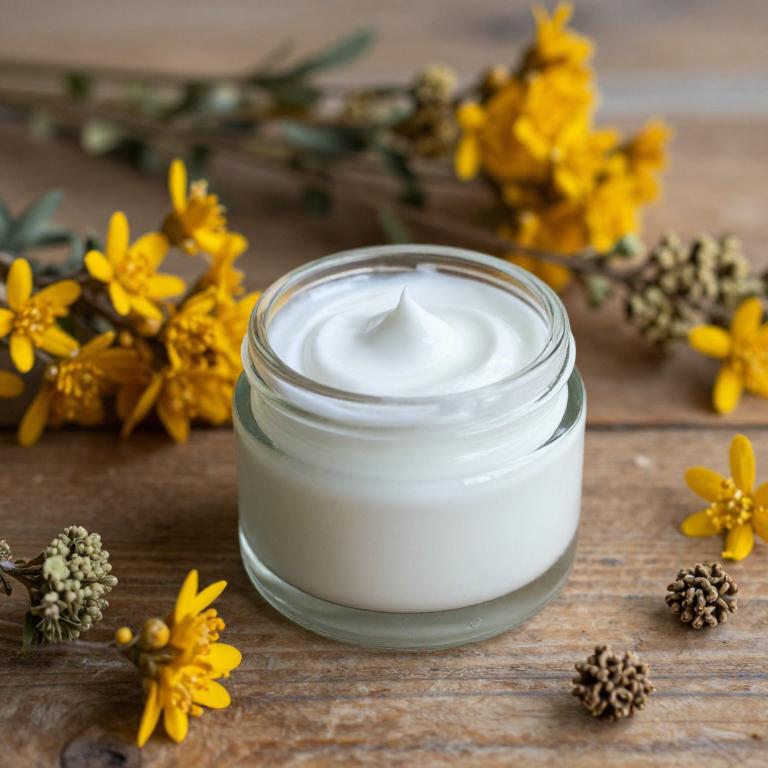
Teucrium polium, also known as "blueweed" or "mountain germander," has been traditionally used in herbal medicine for its potential antiparasitic properties.
Some herbal creams containing Teucrium polium are marketed as natural remedies for the treatment of lice, particularly head lice, due to the plant's reported ability to repel or kill parasitic insects. These creams are often formulated with essential oils and other botanical ingredients to enhance their effectiveness against lice infestations. While preliminary studies suggest Teucrium polium may have some efficacy, more clinical research is needed to confirm its safety and effectiveness as a reliable treatment for lice.
As with any herbal remedy, it is advisable to consult a healthcare professional before use, especially for children or individuals with sensitive skin.
6. Ceylon cinnamon (Cinnamomum zeylanicum)
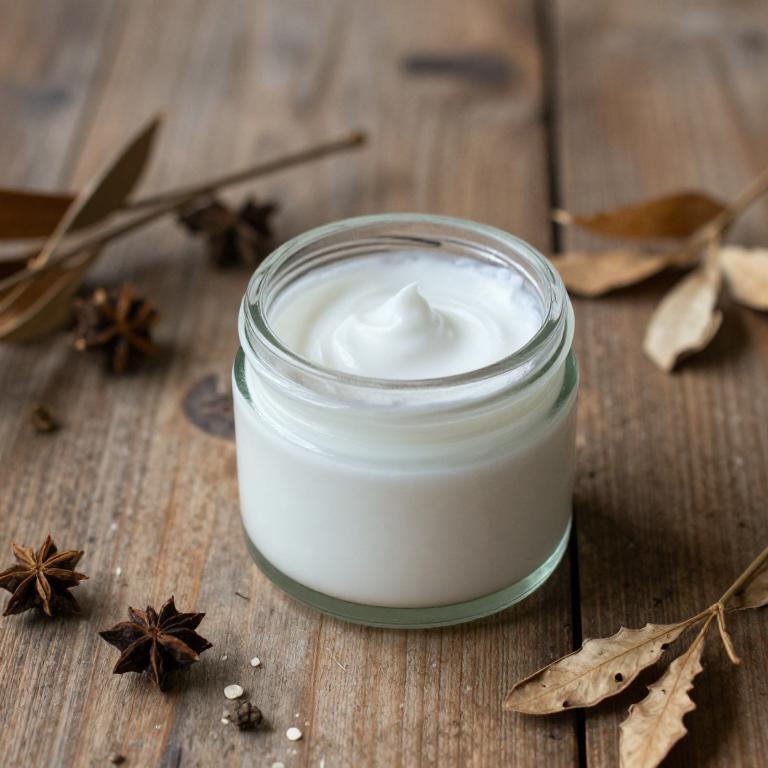
Cinnamomum zeylanicum, commonly known as cinnamon, is a natural ingredient often used in herbal creams for the treatment of lice.
These creams leverage the antimicrobial and antiparasitic properties of cinnamon essential oils to combat head lice effectively. The active compounds in cinnamon, such as cinnamaldehyde and eugenol, help to repel and kill lice by disrupting their exoskeletons and inhibiting their ability to feed. Herbal creams containing cinnamon are favored for their gentle, natural approach, making them a safe alternative to chemical-based treatments.
Regular application of these creams can help reduce infestation and promote a healthier scalp environment.
7. Thyme (Thymus vulgaris)
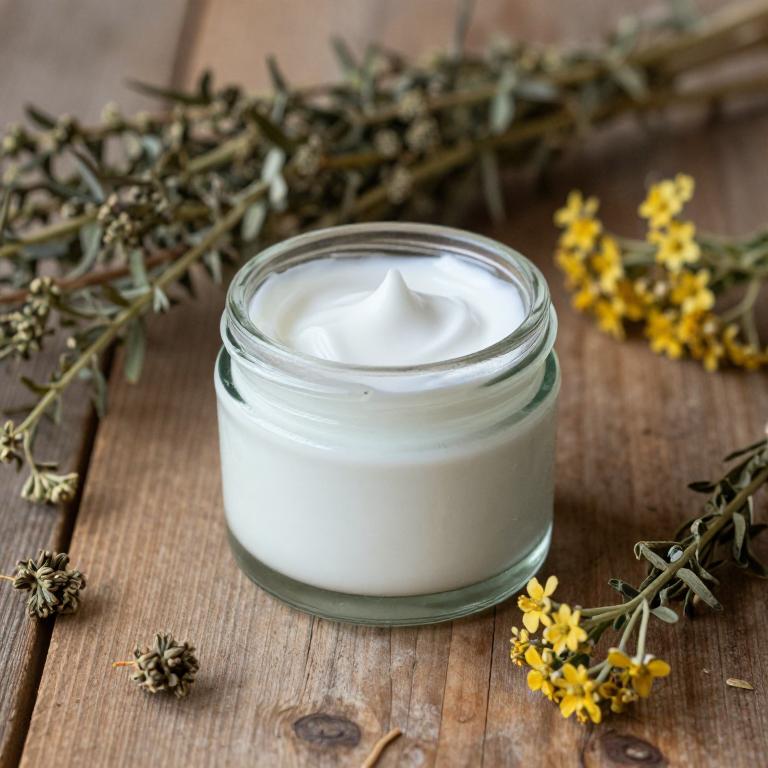
Thymus vulgaris, commonly known as thyme, is a herb that has been traditionally used for its antimicrobial and antiparasitic properties.
Thymus vulgaris herbal creams are formulated to combat lice by leveraging the essential oils present in thyme, such as thymol, which has strong insecticidal effects. These creams are often recommended as a natural alternative to chemical-based lice treatments, offering a safer option for children and individuals seeking holistic remedies. The active compounds in thyme help to suffocate and repel lice, making them effective in reducing infestations when applied consistently.
However, it is important to follow the product instructions carefully and consider combining thyme-based treatments with combing to ensure complete removal of lice and nits.
8. Black pepper (Piper nigrum)

Piper nigrum, commonly known as black pepper, has been traditionally used in herbal remedies for its potent antifungal and antiparasitic properties.
When incorporated into herbal creams, black pepper extract can help combat lice by disrupting their life cycle and repelling infestations. These natural creams are often favored for their minimal side effects compared to chemical treatments, making them a safer option for children and individuals with sensitive skin. The active compound, piperine, in black pepper is believed to enhance the effectiveness of the cream by increasing permeability of the lice's outer layer.
While herbal creams containing Piper nigrum may offer a natural alternative, they should be used in conjunction with proper hygiene and, if necessary, under the guidance of a healthcare professional.
9. White cedar (Thuja occidentalis)
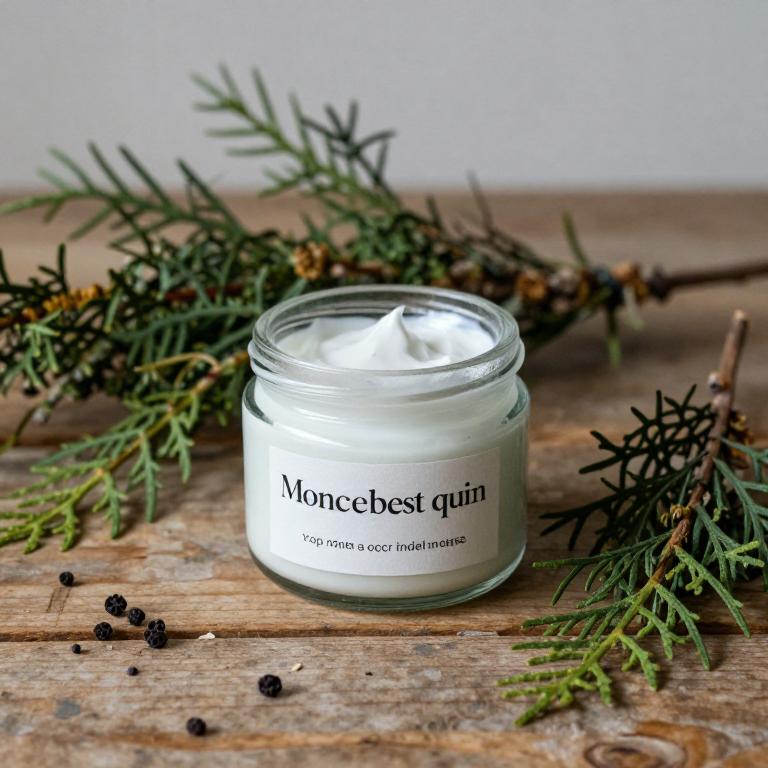
Thuja occidentalis, also known as eastern arborvitae, is a popular herb used in natural remedies for treating lice infestations.
Herbal creams containing thuja occidentalis are believed to have insecticidal properties that can help eliminate head lice and their eggs. These creams are often favored for their mild, plant-based ingredients, making them a safer alternative to synthetic pesticides. However, their effectiveness may vary, and they are typically used in conjunction with combing and other mechanical removal methods.
As with any herbal treatment, it is advisable to consult a healthcare professional before use, especially for children or individuals with sensitive skin.
10. Anise (Pimpinella anisum)
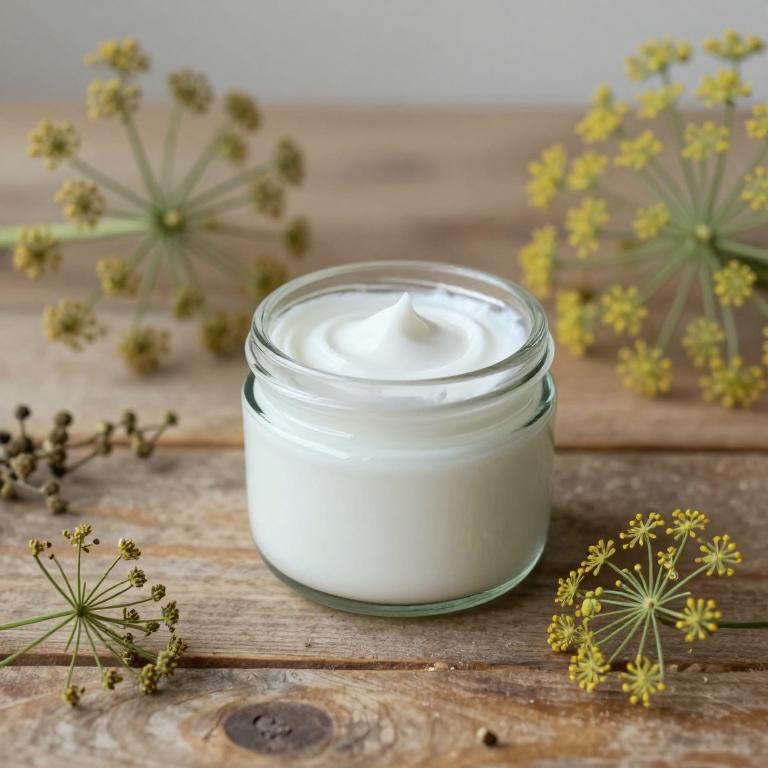
Pimpinella anisum, commonly known as anise, is a herb that has been traditionally used for its aromatic and therapeutic properties.
While it is not a primary treatment for lice, some herbal creams containing anise may be used as a complementary remedy to help repel or reduce lice infestations. These creams often combine anise with other essential oils like lavender or tea tree oil, which are known for their insect-repelling properties. However, it is important to note that anise-based creams are not a substitute for proven lice treatments such as medicated shampoos or combing methods.
Always consult a healthcare professional before using any herbal remedies for lice to ensure safety and effectiveness.